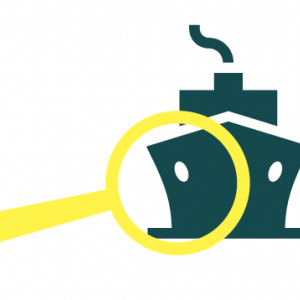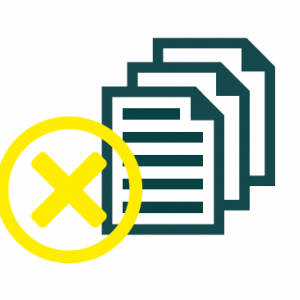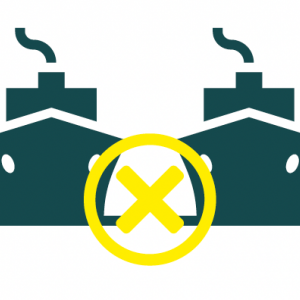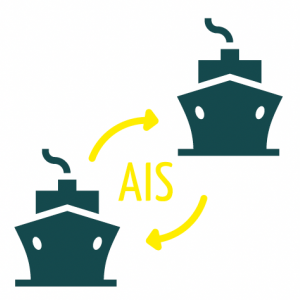Oceans of Deceit: Iran's Deceptive Shipping Practices and Exploitation of the Maritime Industry
by Claire Jungman
Executive Summary
The Islamic Republic of Iran has pursued a wide range of deceptive practices in the shipping industry to evade international sanctions on Iranian oil products. The regime’s deceptive shipping activities compromise the safety and integrity of the international maritime industry.
U.S. sanctions impose penalties on individuals and entities that knowingly engage in significant transactions for the purchase, acquisition, sale, transport, or marketing of petroleum or petroleum products from Iran – or knowingly provide significant support to an Iranian person on the Office of Foreign Assets Control (OFAC)’s List of Specially Designated Nationals and Blocked Persons (SDN List), such as the National Iranian Oil Company (NIOC) and the National Iranian Tanker Company (NITC). These sanctions apply to ship group and registered owners, managers, operators, brokers, ship chandlers, flag states, port operators, shipping companies, freight forwarders, classification service providers, commodity traders, insurance companies (protection and indemnity (P&I) clubs), and financial institutions. These entities should therefore be aware of the deceptive shipping practices used by Iran to evade sanctions. Additional details regarding sanctions on Iran’s shipping and oil industry can be found in the appendix.
Iranian schemes and deceptive practices to evade sanctions have become increasingly widespread and complex. In response, UANI developed its own ship tracking methodology to detect these practices and obtain an accurate account of Iran’s crude oil, gas condensates, and petrochemical exports.
This report provides an explanation of the different types of deceptive shipping schemes that Iran exploits and demonstrates how such activities can be detected by analyzing vessel traffic data, or Automatic Identification System (AIS) data, and satellite imagery.
The report also provides a history of Iran’s fraudulent shipping practices via selected case studies to illustrate methods of evasion and deception, including the use of various ‘spoofing’ techniques and Iran’s manipulation of vessels’ AIS data. The report concludes with policy recommendations on how to counter Iran’s illicit activities at sea and prevent the regime from evading international sanctions, including by strengthening due diligence measures.
Recommendations
Cargos traded in breach of international and national trade sanctions are on the rise. Some of the techniques used to evade sanctions have been used for several years, while others are newer and have become more prevalent over the last few years. These techniques aim to minimize surveillance and detection through confusion or concealment of vessels’ identities, cargo, geographical location, and navigational activities. Such concealment poses risks for all maritime industry players who may inadvertently be involved in transporting a sanctioned cargo.
The cases identified in this report highlight the numerous loopholes and vulnerabilities in the maritime industry that allow Iran to engage in deceptive shipping practices. Every case identified in this report was reported to the respective flag state, classification society, and P&I club by UANI. UANI’s reporting of these cases demonstrates real challenges to the maritime industry’s due diligence protocols.
In light of this report’s findings, UANI suggests the following recommendations for the maritime community and its regulators to assist in developing and implementing an effective sanctions compliance program:
-

Physical Identity Altercations
- Flag states should implement stricter regulatory standards and due diligence checks in the registration process. Flag states should require the submission of current photographs and current details from operators at regular intervals in order for a ship to maintain its registration and deregister non-compliant vessels.
-

False Cargo and Vessel Documents
- Verifying false documentation is extremely challenging and requires checks and corroboration from several sources. The IMO should create a review and verification procedure to detect fraudulent documents, including authenticating certificates issued by flag states, classification societies, and/or ports, by getting confirmation from these authorities.
- Maritime regulators, including but not limited to flag states, classification societies, and P&I clubs, should consider adopting a system of QR codes or barding of documents in order to easily check for authenticity, validity, or cancelation of registry documents using a mobile phone app.
- Port states should require and review complete and accurate shipping documentation, including bills of lading identifying the cargo's origin.
-

Ship-to-Ship Transfers
- Contractual language should be adopted by maritime regulators, including but not limited to flag states, classification societies, and P&I clubs, that prohibit STS transfers of cargo to or from vessels with other vessels that are not broadcasting AIS or have a history of AIS transponder manipulation.
-

False Flags and Flag Hopping
- Before registering a vessel, flag states should contact the previous flag state to determine if the vessel engaged in deceptive shipping practices.
- Flag states should share information with other registries, commercial databases, and the IMO the names and IMO numbers of vessels that have been denied registration or deregistered related to involvement in deceptive shipping practices.
- The IMO should publish a list of all vessels that have changed flags more than three times in one year. Any vessel on that list should be considered a red flag and investigated fully before being registered.
-

Disabling or Manipulation of the AIS on Vessels
- Maritime regulators, including but not limited to flag states, classification societies, and P&I clubs, should adopt an “AIS manipulation clause” as part of their contracts with vessels to ensure that vessels are not engaging in this tactic and, if they are caught doing so, are immediately removed. If the relevant flag states adopted these measures, ship captains might understand that AIS manipulation could lead to vessel deregistration, insurance loss, and classification loss.
- Maritime regulators, including but not limited to flag states, classification societies, and P&I clubs, should adopt a “Two AIS Transponder Clause” as part of their contracts with vessels to ensure that vessels only have one transponder on board. If a vessel is caught using two AIS transponders, it should be immediately removed from relevant flag states, classification societies, and P&I clubs. This information should be reported to the IMO and published publicly.
- Vessels with a history of AIS disablement or manipulation should be denied port entry.
- Any maritime regulator using AIS data should cross-reference the data with known vessel particulars to determine if an AIS message broadcast by a vessel is authentic.
- The IMO should create a global registry for AIS transponders that give each transponder a unique identifier that is included in an AIS transmission. This will enable the determination of which vessels are using which transponders.
- Any flag state, classification society, or P&I club that withdraws services for a vessel due to sanctions violations, AIS manipulation, or deceptive shipping practices should inform the IMO. The IMO should establish a global database where information on vessels that have engaged in deceptive practices is publicly shared across the industry.
- Flag states and other maritime authorities should implement tools, such as satellite imagery, or partner with a ship tracking firm that uses satellite imagery to detect AIS tampering or anomalies by ships, while information on detected cases should be published and shared with other maritime regulators.
- The IMO should update the information provided in GISIS to include known vessel particulars such as the length and width of a vessel to allow for easier cross-referencing of AIS transmissions.
- The U.S. government and other jurisdictions should expand the definition of sanctionable activity to include helping sanctioned entities or entities engaging in sanctionable activities to evade authorities, such as by falsifying a vessel’s identity or location. Entities that are found to be spoofing should be held accountable.
Read the Full Report
Click Here to DownloadReceive Iran News in Your Inbox.
Eye on Iran is a news summary from United Against Nuclear Iran (UANI), a section 501(c)(3) organization. Eye on Iran is available to subscribers on a daily basis or weekly basis.
Receive Iran News in Your Inbox
The Iran nuclear deal is done. And the world's biggest companies have already visited Tehran ready to strike a deal when sanctions end. These businesses will add even more to Iran's bottom line. And that means continued development of nuclear technologies and more cash for Hamas and Hezbollah.